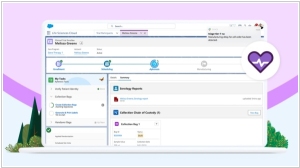Container Virtualization platforms
Updated: July 31, 2023
Container virtualization, also known as containerization, is a lightweight and efficient virtualization technology that allows applications to run in isolated environments known as containers. Containers are self-contained units that include all the necessary libraries, dependencies, and configurations required to run the application. Container virtualization abstracts the application from the underlying operating system, making it highly portable and ensuring consistent behavior across different environments. Docker is one of the most popular containerization platforms that simplifies the creation, deployment, and management of containers. Container virtualization offers numerous benefits, such as faster deployment, increased resource utilization, and easier scalability, making it an integral part of modern application development and deployment workflows.
See also: Top 10 Virtualization platforms
See also: Top 10 Virtualization platforms
2021. Microsoft launches Azure Container Apps, a new serverless container service
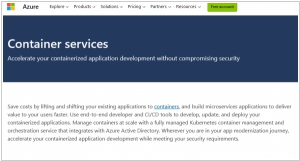
Microsoft has announced the preview launch of Azure Container Apps, a new serverless container service that is fully managed and complements their existing container infrastructure services such as Azure Kubernetes Service (AKS). Azure Container Apps is designed for microservices and offers rapid scaling based on HTTP traffic, events, or long-running background jobs. It shares similarities with AWS App Runner, one of Amazon's serverless container services focused on microservices. Google also provides container-centric services, including Cloud Run, which is their serverless platform for running container-based applications.
2017. Kubernetes comes to Amazon Web Services
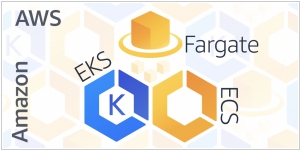
Amazon Web Services (AWS) has finally introduced support for the widely anticipated Kubernetes container orchestration system within its Elastic Container Service (ECS). Kubernetes has emerged as the de facto standard for container orchestration, enjoying support from Google (its incubator), Microsoft, and virtually all major cloud providers. Although AWS is somewhat late to join, it boasts a significant user base with over 100,000 active container clusters and millions of containers already running on its platform. While AWS users have already been utilizing Kubernetes on AWS, they lacked direct support from AWS. However, this new service will enable AWS to take charge of managing the container orchestration system. ECS for Kubernetes will ensure compatibility with the latest Kubernetes versions, with AWS handling upgrades and overall service and cluster management.
2017. Microsoft Azure shifts its focus to Kubernetes
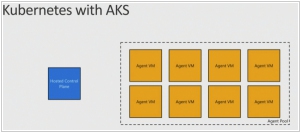
When it comes to container orchestration, Kubernetes is rapidly emerging as the standard of choice, even as Docker Swarm and Mesos/Mesosphere DC/OS carve out their own specific roles. For a considerable period, Microsoft advocated for its managed Azure Container Service (ACS), highlighting its support for multiple orchestration tools. However, there has been a shift in strategy, and Microsoft is now rebranding the service as AKS, with the 'K' representing Kubernetes. While AKS itself is offered at no cost, it's important to note that you still incur charges for the virtual machines (VMs) responsible for running your containers. This differs from the pricing model of the Google Container Engine, which imposes a flat fee per hour and cluster on its platform. While the fee may be relatively small, it's worth noting that it is not entirely free.
2017. Docker offers native Kubernetes support
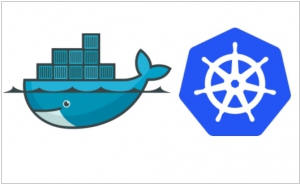
Kubernetes, the open-source tool created by Google, has emerged victorious in the container technology landscape. As a result, Docker has made an announcement to provide native support for Kubernetes. Although Docker is not completely abandoning its own orchestration tool, Docker Swarm, by offering native Kubernetes support for the first time, the company acknowledges the significant adoption of Kubernetes and the necessity to integrate it into their offerings. To mitigate any concerns regarding supporting a competing tool, Docker is introducing an architecture that empowers users to select their preferred orchestration engine at runtime. This means users can choose between Swarm or Kubernetes without requiring any code modifications.
2016. Google launches a more scalable and robust Kubernetes

Google has introduced the latest iteration of its open-source orchestration service, Kubernetes, which aids in deploying, scaling, and managing software containers. Version 1.3 of Kubernetes primarily focuses on enhancing scalability and robustness for users managing containers in production environments. Furthermore, Kubernetes now offers support for additional emerging standards, including CoreOS's rkt, as well as standards proposed by the Open Container Initiative (OCI) and Container Network Interface (CNI) initiatives. This update empowers users to establish services that span multiple clusters, extending to multiple cloud platforms if desired. Google highlights that this capability enables the creation of hybrid and multi-cloud scenarios, facilitating the development of highly available clusters that exhibit greater resilience against disruptions.
2016. Microsoft expands its support for Docker containers
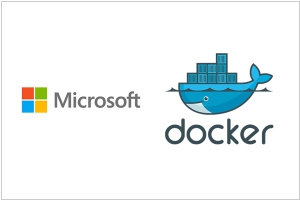
Microsoft has revealed its plans to expand support for Docker containers by integrating them more deeply into several of its enterprise and DevOps tools. Microsoft's keen interest in Docker is well-known, as evidenced by its inclusion of Docker support in the upcoming release of Windows Server and its development of its own Hyper-V container solutions. The company has even demonstrated the ability to run the Linux version of SQL Server in containers on Ubuntu. In line with these efforts, Microsoft has announced that Docker Datacenter, the subscription-based commercial platform offered by Docker, is now accessible through the Azure marketplace. This means that users can easily deploy and run a supported version of Docker on Azure.
2016. Docker acquired cloud infrastructure startup Unikernel Systems
Containers management startup Docker has made an announcement regarding the acquisition of Unikernel Systems, a startup dedicated to democratizing unikernels for developers. Docker intends to incorporate support for unikernels into its own tools and services, expanding its focus beyond containers to facilitate the creation of highly efficient microservices architectures. The financial details of the acquisition were not disclosed. Unikernels operate on the principle of streamlining the operating system to its bare essentials, enabling it to exclusively run a specific application without any unnecessary components. This approach involves compiling the required libraries directly into the operating system kernel, streamlining the application's execution.
2015. Google Container Engine now supports the latest version of Kubernetes
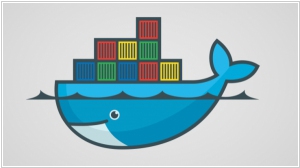
Google has unveiled updates to its Container Engine, a service designed to automate the management of clusters for container deployments. The latest version of Kubernetes (version 1.1) is now supported, bringing a range of performance enhancements that are accessible to Container Engine users. Notably, Container Engine now includes horizontal pod autoscaling, allowing for the addition of more servers to the cluster when necessary. Additionally, developers can leverage the newly introduced HTTP load balancer to direct traffic to different Kubernetes services based on traffic patterns. Google's team has also restructured the networking system with a focus on improving speed. This involved implementing native iptables into Container Engine, resulting in a significant reduction in CPU overhead and an enhancement in reliability, as stated by Google.
2014. CoreOS invented the new container technology to fight Docker
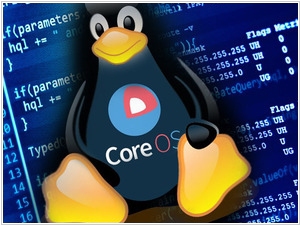
In recent months, the container technology provider Docker has been steadily establishing itself as the dominant standard in the field. However, CoreOS, a specialist in Linux operating systems, has now introduced its own competitive technology called Rocket, potentially triggering a container-standardization battle between the two companies. CoreOS argues that Docker's focus on developing enterprise-oriented features has led to a loss of emphasis on ensuring the core container technology remains lightweight and portable. Consequently, Docker finds itself in competition with container-management-and-orchestration services like Google's Kubernetes and the recently launched Amazon EC2 Container service. Rocket, similar to Docker, functions as a container engine but does not include the additional features that Docker has been developing to enhance its enterprise-friendliness. These features encompass tools for cloud server deployment, clustering capabilities, and networking functionalities.
2014. Cloud container technology provider Docker gets $40M in funding
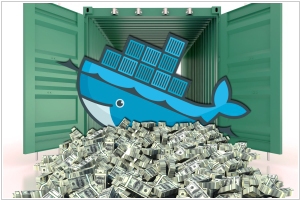
The open source Docker container platform, Docker, has successfully raised $40 million in Series C funding. This substantial investment underlines the significant value attributed to Docker's approach to container technology within both the investor community and the technology industry as a whole. Throughout this summer, the container-management startup has garnered attention from prominent cloud companies such as Google, Microsoft, Amazon, and VMware, who have demonstrated their support by ensuring compatibility between their platforms and Docker's container technology. Docker's platform simplifies the deployment of applications across diverse environments, eliminating concerns about potential conflicts between different application components, such as databases impacting other elements.


